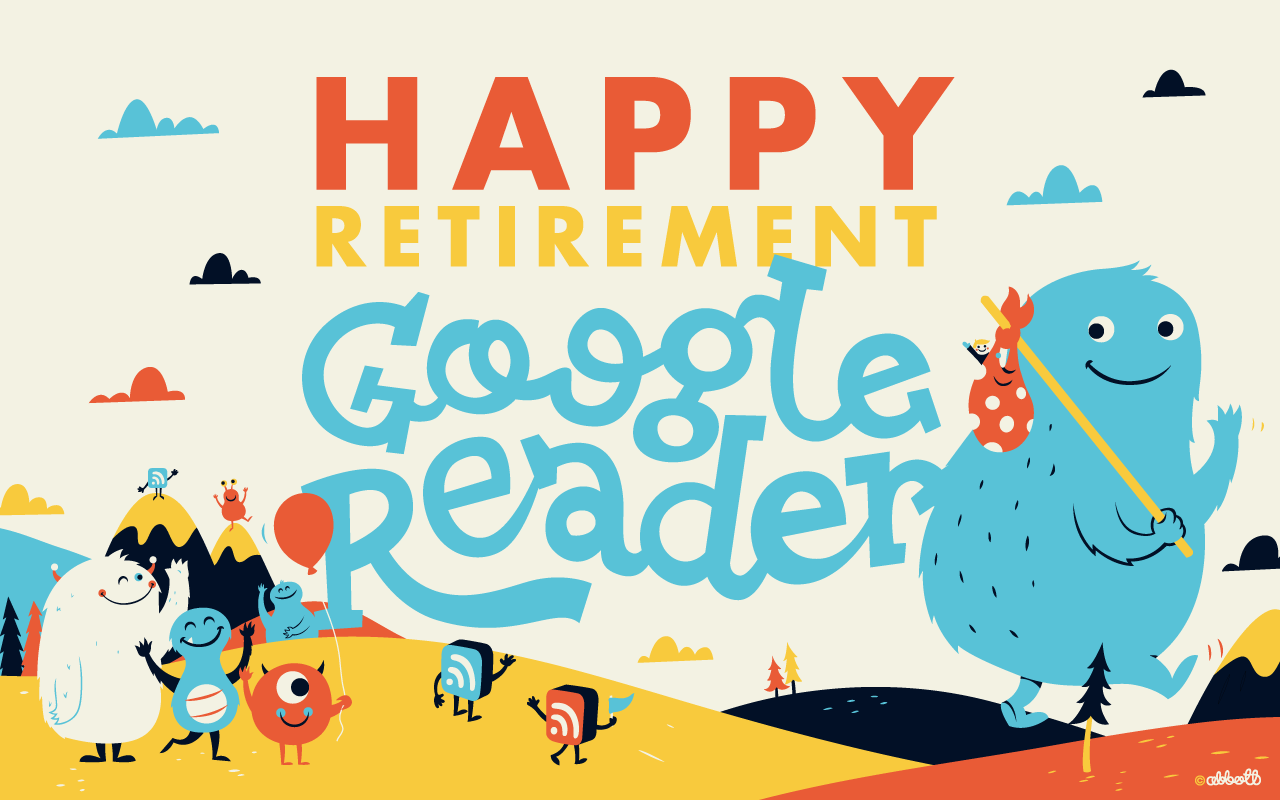Today is a sad day. As of today, Google Reader is no more. I've previously mentioned how much I use Google Reader to keep tabs on news around the internet, and I've encouraged readership of NOTE: via Google Reader or other similar tools.
The demise of Google Reader was announced back in March, alongside a raft of other retirements. Since that time, a number of news readers have been working overtime to capture the departing Googlers, no least Feedly. It's no small task because Google have removed the back-end aggregation of news articles, not just their front-end client.
To ensure a smooth transition, Google provided a three-month sunset period so that all users had sufficient time to find an alternative feed-reading solution. Anybody wanting to retain their Reader data, including subscriptions, was able to do so through Google Takeout.
Feedly have done a great job of building their own back-end, and they offered an automated migration from Google Reader, so one didn't even need to use Google Takeout. Feedly have generously made their back-end available to their competitor's clients too. The details are at http://cloud.feedly.com. You can start your use of Feedly, and you can see a list of supported clients.
The Feedly client is available as a variety of mobile apps, plus through your browser. I've been happily using it on my Android devices for some weeks and switched to the Feedly cloud a couple of weeks back.
I still think that the best means of keeping up-to-date with news is through an RSS reader. It's like my personal newspaper with news from the variety of blogs and web sites that I subscribe to giving my news about technology, motor racing, food & drink, and all my other hobbies and interests.
NOTE: has 500 subscribers who get new articles pushed to their reader, but we also have 2,000 Twitter subscribers, so the observation about the demise of Google Reader being due to the different way that people consume news (frequently via social media) possibly holds true. Regardless, we intend to support as many means of accessing NOTE: for as long as possible.
